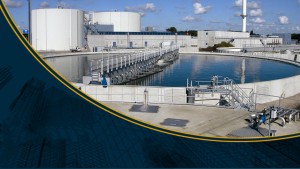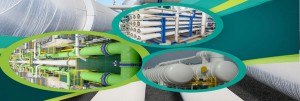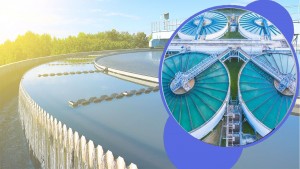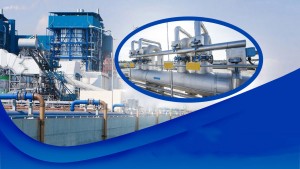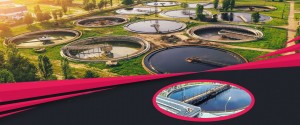Chennai, Tamil Nadu Oct 17, 2022 (Issuewire.com) - EFFLUENT TREATMENT PLANT
Without a doubt, water is the most valuable regular asset that is likewise a significant need of life. Water isn't just seen as valuable for domestic purposes however it is additionally vitally utilized for industrial purposes. However it is tracked down in overflow, yet a significant piece of the water found is defiled and just 1% of the water is reasonable for drinking. In this way, water ought to be appropriately treated to make it reusable. Here the requirement for Effluent Treatment Plants in India becomes possibly the most important factor. Effluent Treatment Plant is utilized in India to clean industrial effluents as well as debased water of rivers and lakes to make water reusable for extra purposes. This plant likewise keeps the environment from the harmful impact brought about by the affluent.
ETP is a kind of wastewater treatment plant that is intended to refine modern water or effluents that contain different materials, contingent upon the business from which it is produced. ETP plant is generally utilized in businesses in India where there is a higher opportunity for water tainting like pharmaceuticals, textiles, tanneries, and chemicals. Be that as it may, the treatment cycle might shift from one industry to another. Effluent treatment is a kind of wastewater treatment technique did to refine industrial wastewater for either reuse or to deliver safe water to the environment. The effluent treatment plant in India is intended to tackle the environmental contamination issue made by the waste material of the organization without presenting the loss to the environment.
Contingent upon the sort of industry, effluents contain different materials like oils, oil, and, surprisingly, a few poisonous materials. Effluents from food and drink production lines have degradable natural poisons and a few modern effluents contain a variety of pollutions so these enterprises need to have Effluent Treatment Plant. This plant resolves at various levels and conveys different physical, chemical, biological, and film cycles to deal with wastewater from various industries like medications, pharmaceuticals, dairy, textiles, and so on.
Effluent water is wastewater that contains organic and inorganic matter and hurtful chemicals created in lots of volumes as the need might arise to be treated prior to arranging into the environment.
All ABOUT ETP
Effluent is created in many manufacturing industries like textile, pharmaceuticals and chemical compounds, tanneries, and so on. Contaminated water can't be delivered without treatment as it contains poisonous and non-harmful chemicals. Delivering it might cause defilement of the current unadulterated water and will influence the climate. Subsequently, ETP's are introduced in most manufacturing industries.
The Effluent treatment plants (ETP) are utilized for the expulsion of high measures of organic mixtures, flotsam and jetsam, soil, coarseness, contamination, harmful, non-poisonous materials and polymers, and so on from industrial effluent. The ETP plants use vanishing and drying strategies and other helper procedures, for example, centrifuging, filtration, and burning for chemical processing, and effluent treatment.
WHAT IS AN ETP PLANT?
An ETP plant represents Effluent Treatment Plant it is a wastewater treatment plant that treats and cleans industrial effluents to either arrange them into the common habitat or reuse the water for extra purposes. Such treatment guarantees that any pollutant is appropriately taken out from the water, making it alright for removal or reusability.
An ETP plant is profoundly utilized in industries, for example,
- Pharmaceuticals
- Textiles
- Tanneries
- Car/Automobile
- Chemicals
These industries produce volumes of contaminated water.
EFFLUENT TREATMENT PLANT DESIGN
The design of ETP relies upon the quality and quantity of wastewater released from the various industries and land accessibility. In the event that the accessibility of land in your industry is less, Common Effluent Treatment Plant (CETP) is liked over Effluent Treatment Plant (ETP).
ADVANTAGES OF ETP
- To clean industry effluent and reuse it for additional utilization
- To decrease the use of new water in businesses
- To protect common habitats against pollution
- To fulfill the guidelines for the discharge of poisons set by the Public authority and stay away from weighty punishment
- To decrease consumption of water securing
WHY WE REALLY WANT AN ETP PLANT/WASTEWATER TREATMENT PLANT?
ETP purifies wastewater produced by families and industry and the treatment cycle brings about reusable clean water and assists with saving water and our planet. The wastewater treatment process is normally founded on the high-impact breath strategy involving three phases in particular essential, auxiliary, and tertiary treatment. The water in the ETP is gone through processes like substance dosing, air circulation, and settling. The last treatment process filtration cum assimilation is finished with the assistance of channels. Finally, the handled water goes for cutting-edge treatment to make the water useable for the water systems and different purposes.
Industrial cycles have water as the primary fixing. Effluent water is the result of their functional exercises which can't be reused and should be discarded. According to government regulations, organizations are not permitted to deliver their wastewater into normal water bodies without treating the water up to a critical level.
Moreover, water is a scant asset, subsequently, organizations search for an answer in which they can reuse water partially.
For these reasons, an ETP plant assumes a significant part in treating gushing water so it very well may be either discarded into the water sources or reused with additional treatment.
ADVANTAGES OF EFFLUENT TREATMENT PLANT
- Delivers perfect and reusable water
- Guarantees consistency of guidelines set by the public authority to safeguard the environment from effluents.
- Forestalls illnesses/diseases
- Guarantees ideal usage of water
- Decrease the freshwater use in the enterprises
- Clean industrial emanating and reuse it for additional utilization or safe removal
- To fulfill the guidelines set by the Indian government for pollutants outflow to keep away from punishment
- Saves our planet by eliminating hazardous chemicals from the water and ensures that water entering the ground affects the planet.
Given underneath are the phases of water treatment in an Effluent Treatment Plant:
- STARTER LEVEL
In the underlying stage, strong particles like clothes, sticks, and so on are taken out from the wastewater through actual cycles like sedimentation, filtration, air circulation, stream leveling, explanation, and screening.
- PRIMARY LEVEL
The following stage is the primary level of treatment in which huge solids and organic matter are taken out through physical and compound cycles. A similar actual cycle used at the fundamental level is utilized here. Also, the chemical cycles include chemical coagulation, pH control, chemical precipitation, flocculation, broken down air buoyancy, and so forth to work on the quality of the wastewater.
- SECONDARY LEVEL
This level eliminates biodegradable organic materials and suspended matter by utilizing organic and chemical cycles.
- TERTIARY LEVEL
At the last stage, suspended and broken down materials are taken out utilizing the physical, chemical, and biological cycles.
Media Contact
Water Treatment Plant Manufacturers Company starfluidtech@gmail.com 8248649217 No: 4, Patel Street, Vijayalakshmipuram, Ambattur https://watertreatmentplantmanufacturers.com/
